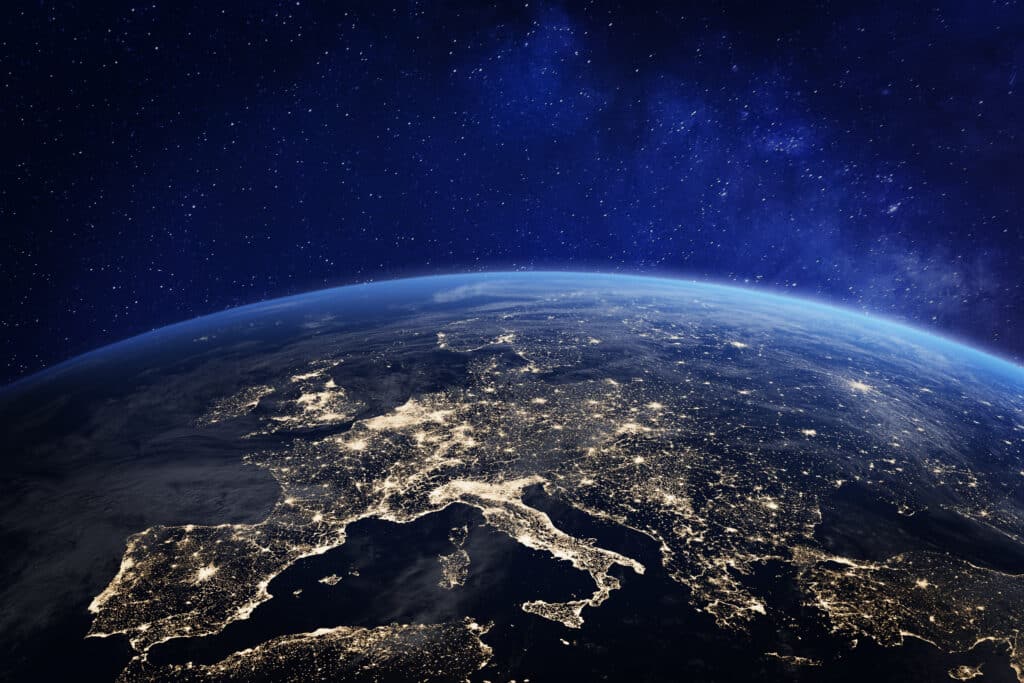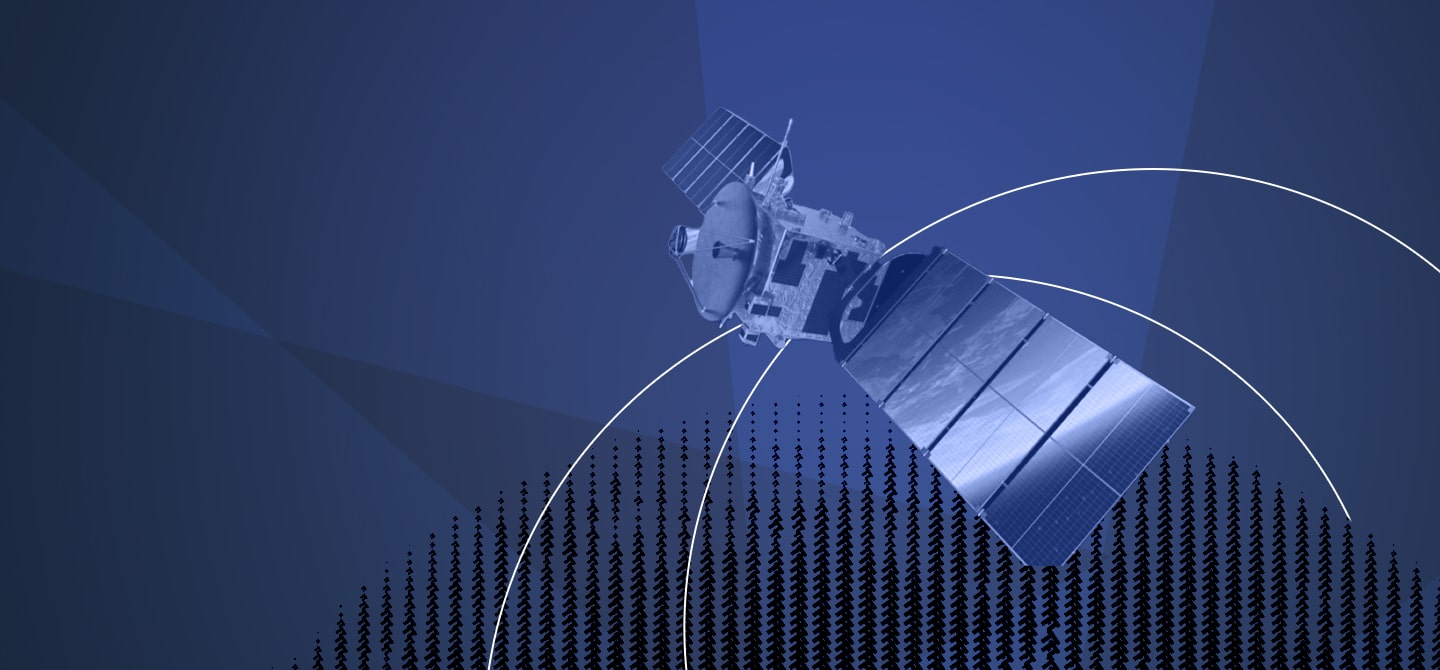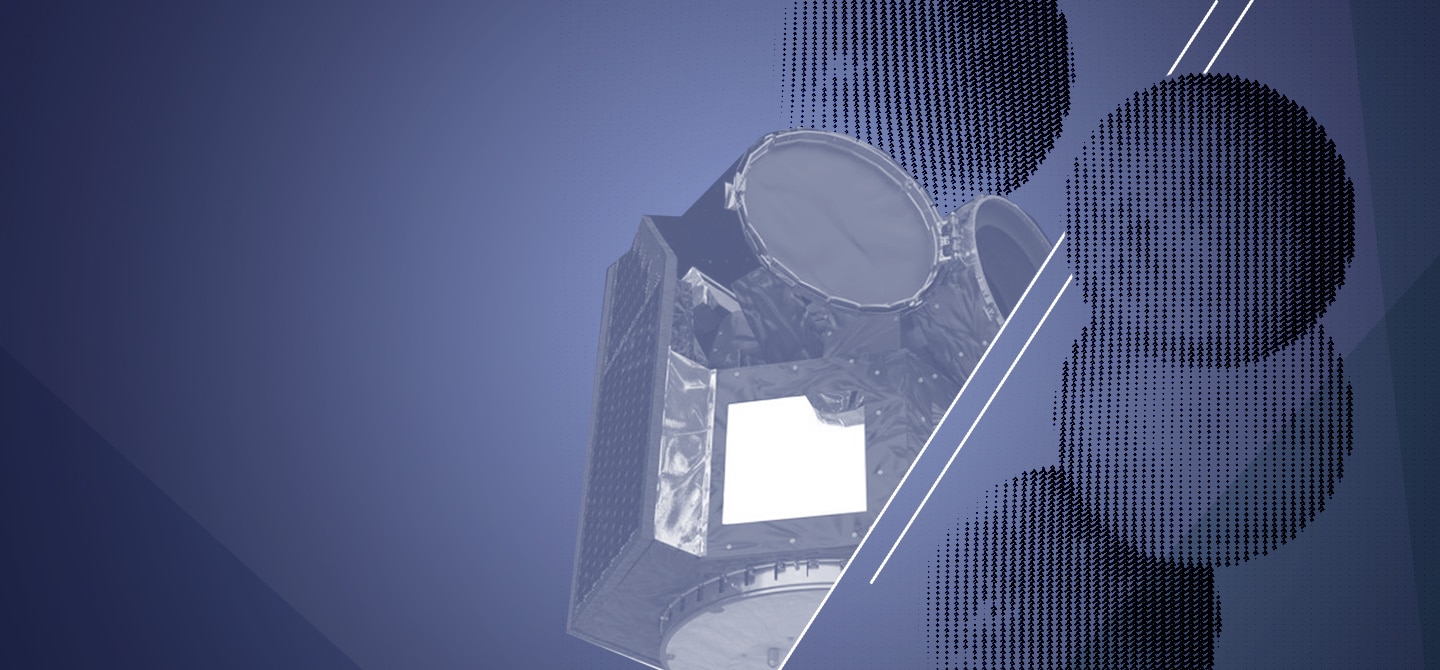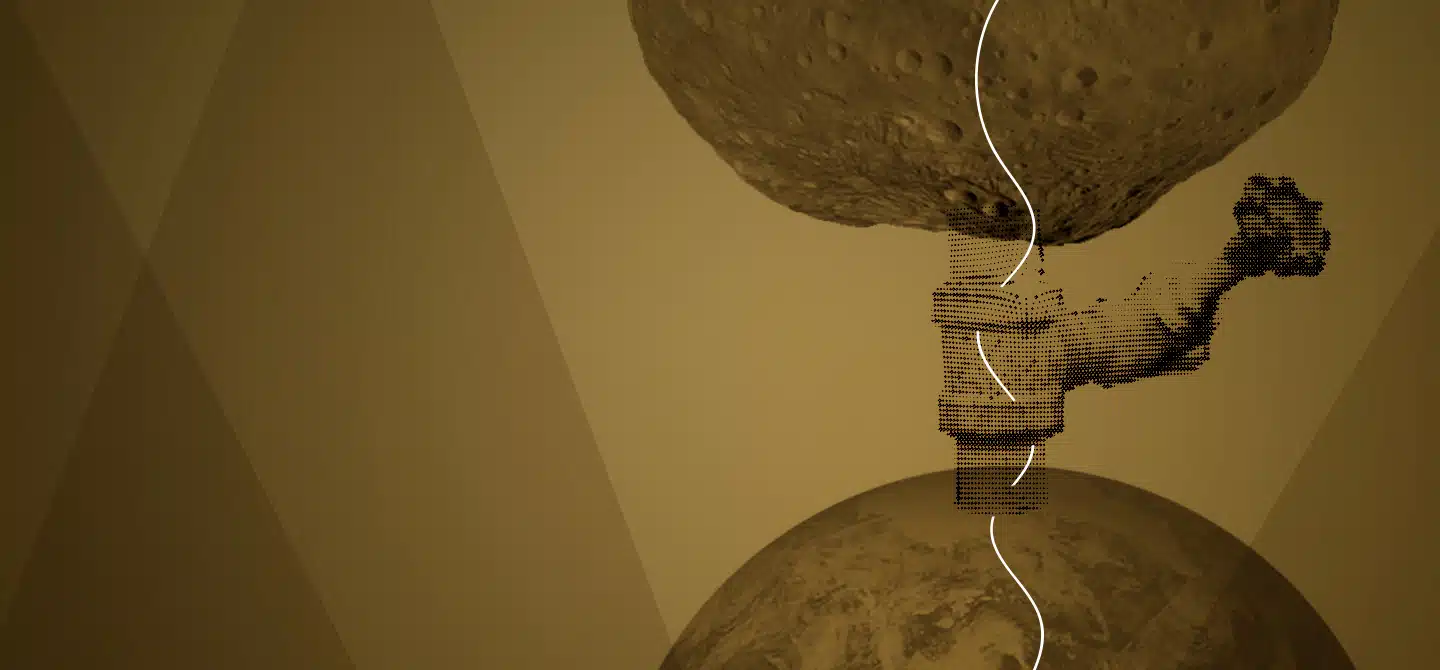Space industry: what are the scientific and geopolitical challenges for Europe?
- Our understanding of the Solar System today has benefited greatly from European missions to study bodies such as Venus, Mercury and the Moon.
- The future is rich in new missions: the Bepi-Colombo probe, launched in 2018, is on its way to Mercury and the JUICE probe will reach Jupiter in 2031.
- But the European Space Agency's (ESA) budget is 8 times smaller than that of the US National Aeronautics and Space Administration (NASA).
- Cooperation between space agencies is inevitable, but also subject to geopolitical uncertainties: in 2022, Russia withdrew from the ExoMars programme.
- While Europe has made considerable progress on the scientific front, it still has to overcome industrial and commercial weaknesses that threaten its autonomy in this field.
On 14 April, JUICE (one of the European Space Agency’s most ambitious space exploration missions) left on board one of the last Ariane 5 rockets bound for Jupiter. After 8 years of travelling through the Solar System and 3 gravitational assists near the Earth and Venus, it will finally reach its destination: Europa, Ganymede and Callisto, the icy moons of Jupiter. Its main objective is to verify the existence of the internal oceans of these natural satellites and to better understand their characteristics in order to determine their relevance to the search for life outside Earth.

This exciting mission to Jupiter is just one of Europe’s many space projects. But where does Europe stand in relation to its American, Russian and Chinese competitors (and sometimes partners)? What issues is it currently tackling, and what challenges does it need to anticipate for the future? The answer depends very much on what we call ‘space’…
An undeniable lead in the scientific space sector
« Doing more with less » is Europe’s credo when it comes to designing, building and sending high-tech missions into space to discover the Universe.
From 2019 to 2024, the budget of the European Space Agency (ESA) has been set at a total of 14.4 billion euros (the price of a cinema ticket paid each year by every European citizen). For the same period, the total budget of the US National Aeronautics and Space Administration (NASA) is around 123 billion dollars, more than 8 times as much. The difference in funding between the two agencies has always been enormous, but this has not prevented Europe from shining with its scientific missions. The least we can say is that our current knowledge of the Solar System has benefited greatly from all the European exploration missions.
NASA’s budget is 8 times that of the ESA.
The Sun (Ulysses, Solar Orbiter), Mercury (Bepi Colombo), Venus (Venus Express), the Moon (SMART‑1), Mars (Mars Express, ExoMars TGO), Saturn (and the landing of the Huygens module on Titan), comets (Rosetta): all these bodies have been observed, analysed, monitored and probed by teams of scientists and engineers from the European Space Agency. And the future already holds a wealth of new missions. The Bepi-Colombo probe, launched in 2018, is on its way to Mercury; the JUICE probe, which left Earth last April, will reach Jupiter in 2031; and finally the HERA mission will take off at the end of 2024 to observe the impact crater that the American DART probe created by deflecting the small asteroid Dimorphos.
Planetary exploration is just one part of Europe’s scientific exploration programme. The distant Universe can sometimes only be observed from space, by placing telescopes far from Earth. XMM-Newton (X‑rays), Integral (gamma rays) and Gaïa (visible light) are all specialised instruments that have revolutionised our understanding of stars and galaxies. In July 2023, the European space telescope Euclid will be sent 1.5 million km from Earth to tackle the entire Universe and the famous mystery of dark energy, responsible for its expansion.
An inevitable cooperation
But the major space agencies cannot support all the programmes they launch on their own, which also encourages their competitors to enter into fruitful partnerships. For example, Europe participated in the development of the famous James Webb space telescope, thereby saving observation time for its scientific teams. In the Artemis programme, half of the Orion spacecraft (its service module) was manufactured in Europe, as were several modules of the future Gateway lunar space station, guaranteeing European astronauts places in this vast programme to return to the Moon.
Unfortunately, international collaboration also means being dependent on other countries and being sensitive to geopolitical uncertainties. Following the war with Ukraine, Russia’s withdrawal in 2022 from the ExoMars programme (planned landing on Mars of the first European Mars rover) has significantly delayed this mission. The time needed to manufacture the part of the probe that was dedicated to Russia has now passed, and the launch is not scheduled before 2028.
An industrial and commercial space sector in the throes of restructuring
Not everything is going well for Europe in space. On the scientific front, things are looking up, but on the industrial and commercial front, things are more uncertain. Following a number of delays, the future Ariane 6 (which was initially due to be launched before Ariane 5’s final lift-off, to provide a technical link between the two) will not actually be able to leave before 2024, leaving at least one year without Europe being able to use its launcher to pursue its space programmes (scientific, commercial and military). In the meantime, there is a risk that some private customers will turn to other solutions for access to space (American or even Indian), seriously threatening Europe’s autonomy in this area.
The emergence on the other side of the Atlantic of a new commercially aggressive and agile private space sector, based on the use of new technologies and greater (economic and technological) risk-taking, is also pushing the commercial organisation of European space to its limits (where New Space also started, but later, and has developed less than in the United States).
The internal workings of the European Space Agency are also being called into question.
In December 2022, ESA signed a €33 million contract with ArianeGroup (France) to develop a reusable (oxygen/methane) spacecraft called Themis, powered by its new Prometheus engine. Tests are due to take place in Kiruna (Sweden) by 2024, then in Kourou (French Guiana) in 2025–2026. Will this new European reusable technology be ready in time? Will it find its place in Europe’s commercial offering against other nations? Only time will tell.
But more generally, the internal workings of the European Space Agency are also being called into question. The principle of « geographical return », for example, whereby Europe invests in each Member State (in the form of contracts awarded to its industry to carry out space activities) an amount equivalent to that country’s contribution. The idea is to enable the country’s companies to win certain contracts and acquire new technologies. But the other side of the coin is that this system generates political disagreements between the leaders of each state, in addition to being managed by a cumbersome and slow administration.
Will we be able to prioritise scientific and technological interests at the expense of political interests? The next strategic decisions will be taken in 2025, at the next ESA ministerial meeting. In the meantime, we are witnessing major economic, geopolitical and strategic changes, and the response of Europe in space is awaited by many with interest… and impatience.















